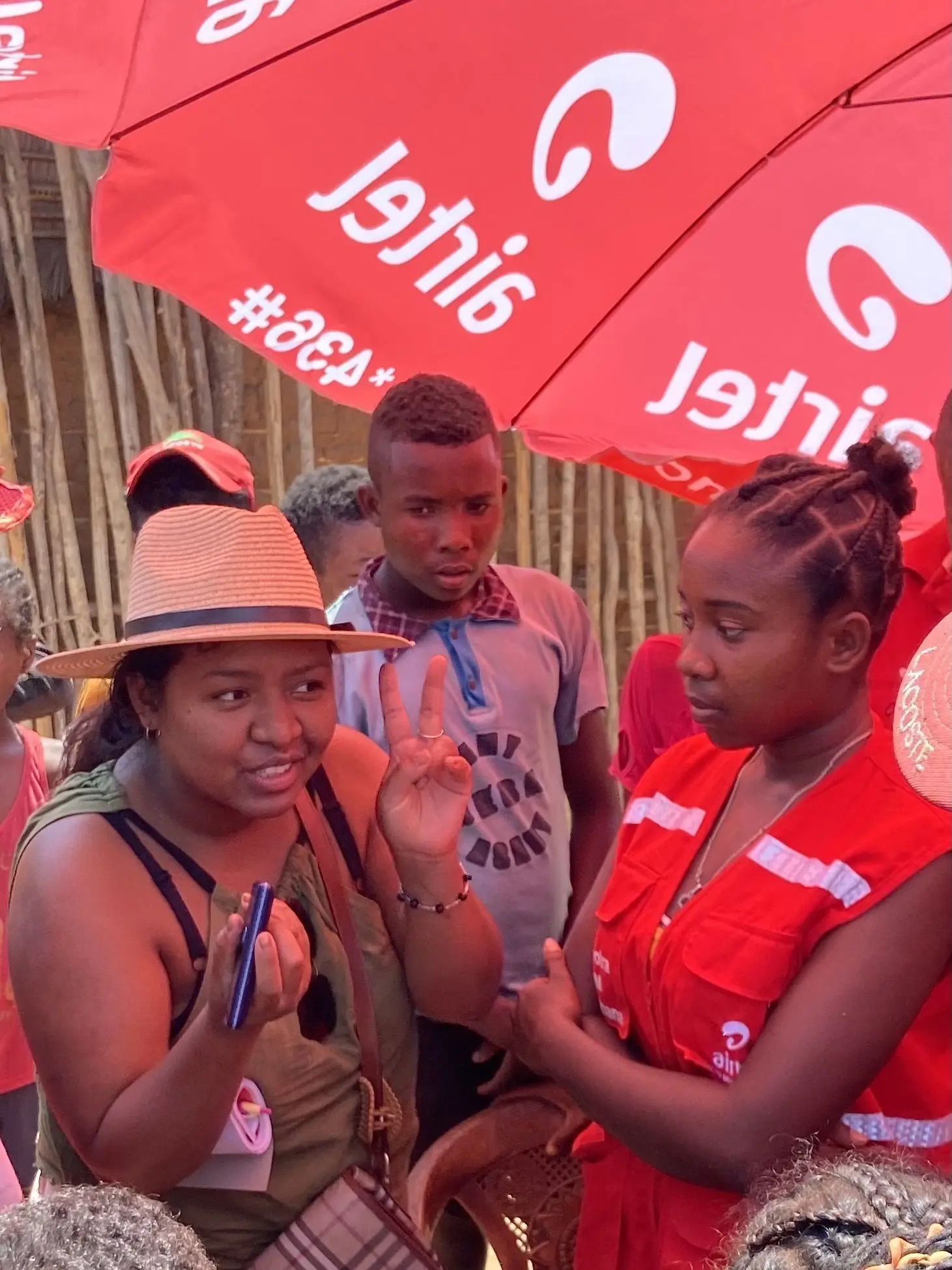Ranked among the ten countries most vulnerable to climate change in the world, Madagascar is innovating in its means of intervention in this digital era. The National Office for Risk and Disaster Management (BNGRC) and Medair, in close collaboration with Viamo, the General Directorate of Meteorology (DGM) and Earth Networks, in close collaboration with Viamo, are developing an innovative early warning system to strengthen the resilience of people most vulnerable to natural disasters. The objective of the 2-year project, funded by the European Union, is to save lives and alleviate suffering caused by extreme weather conditions.
Northwestern Madagascar was chosen as the pilot intervention zone for the first phase of the project, as this region is very exposed to meteorological incidents. Since June 2019, more than 60,000 people in the Ambanja district have benefitted from a risk and disaster management hotline, the first in the country in this area. Viamo developed the 9-3-0 hotline that can be reached 24/7 with unlimited calling capacity and is available from the country’s three phone operators: Airtel, Orange, and Telma.
Anyone can call the 9-3-0 hotline free of charge via mobile. The beneficiaries are able to choose between Malagasy, French, and Sakalava, the local dialect, in order to encourage and support the use of this very new system. Depending on their needs, callers can choose to receive or share information.
For the general audience, warning messages and awareness of social behavior change on climate risks are available. Project stakeholders meet periodically to develop these key messages, adapted to the needs of the area. These key messages can be information on disaster relief, floods, cyclones, fires, and bushfires.
For local authorities, the 9-3-0 hotline helps complete a list of initial Survey Multi-hazard (EIMA) that collects information about rapid occurrence of hazards. This may include the date of occurrence, the place, the causes, and the impacts of an accident on humans, habitats, transportation, communication, and more. All this information is based on questionnaires developed by the BNGRC teams. Also, as the 9-3-0 hotline automatically records the numbers of callers who have registered, local authorities have access to remote mobile training, called Job Aids. The tool enables local authorities to be aware of the actions needed to be taken in the event of natural disasters, such as cyclones or floods, or in the event of fires at different levels: region, district, municipality, or neighborhood.
For everyone, a ticket system allows real-time, confidential monitoring of feedback on the activities of the hotline, including complaints, remarks, and problems identified by the general public, as well as by local authorities. The feedback may be testimonials about the hotline’s benefits, improvements, , or a complaint about the management of the 9-3-0 hotline.
Although most of the content on the 9-3-0 hotline is delivered via interactive voice response (IVR), any caller can connect to a call center to request assistance directly from the BNGRC team. These operators remain available to the general public and to local authorities, in order to best receive and transmit information for an individual. Finally, automated SMS alerts can be activated, and inform the local population of imminent danger.
At the national level, the operators of BNGRC and Medair manage the hotline and its components through a dynamic dashboard where indicators and content are available online and in real-time.
The 9-3-0 hotline, which until recently covered 57 villages and communes, has just extended its intervention zone to the region of Menabe, due to the support of the European Union. By expanding the system and making improvements, the project will now include awareness-raising on forest fires, a problem particularly affecting the region.
The next steps are translating and recording the contents of the 9-3-0 hotline in Sakalava North, providing the dashboard in English, and finalizing the call center operator’s questionnaires. In the field, it is the volunteers, the local authorities, and the radio stations who can benefit from this new tool, strengthening the communities’ awareness of the risks of natural disasters. With free access to an on-demand service directly connected to the appropriate institutional level, communities can be better prepared to respond to natural disasters and emergencies.




